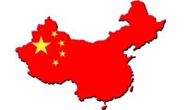Government/Policy

February 14, 2019
USTR Report Pans WTO Treatment of China
Written by Sandy Williams
A new report by the U.S. Trade Representative says that China is moving further away from an open market and, instead, is embracing a state-led approach to the economy and trade.
As a member of the World Trade Organization, China is expected to comply with its bilateral and multilateral commitments, but has demonstrated that its compliance record is poor.
The USTR’s analysis of China’s trade regime from a World Trade Organization perspective shows that numerous policies and practices by China “disadvantage or harm U.S. companies and workers, often severely.”
Wrote the USTR in its report, “As we catalogued in last year’s report, a consistent pattern exists where the United States has raised a particular concern, China has specifically promised to address that concern – and China’s promise has not been fulfilled.”
Areas of concern include technology transfer, the electronic payment services market and agricultural biotechnology products.
The report also highlights China’s use of export and import substitution subsidies in numerous sectors, contrary to explicit prohibitions in WTO rules. The use of export restraints such as quotas, licensing and duties on raw materials has benefited downstream producers in China at the expense of foreign producers, says the USTR.
The report contends that WTO rules are insufficient to address the serious problems posed by China and WTO reform is “only marginally focused on the China problem.
To address “the unique and very serious challenges presented by China’s trade regime,” the administration is pursuing the following approach:
“The United States will defend U.S. companies and workers from China’s unfair trading practices and will seek to restore balance to the trade relationship between the United States and China. As part of these efforts, the United States will take all appropriate actions to ensure that the costs of China’s non-market economic system are borne by China, not by the United States. The United States also will continue to encourage China to make fundamental structural changes to its approach to the economy and trade consistent with the open, market-oriented approach pursued by other WTO members, which is rooted in the principles of nondiscrimination, market access, reciprocity, fairness and transparency. As China should recognize, these changes will do more than simply ease the growing trade tensions with its trading partners. These changes will also benefit China by placing its economy on a more sustainable path, and will contribute to the growth of the U.S. economy and the global economy.”
USTR adds: “The United States’ approach to China is more aggressive than in the past. Out of necessity, the United States is now using all available tools – including domestic trade remedies, bilateral negotiations, WTO litigation and strategic engagement with like-minded trading partners – to respond to the unique and very serious challenges presented by China. But the goal for the United States remains the same. The United States seeks a trade relationship with China that is fair, reciprocal and balanced.”







